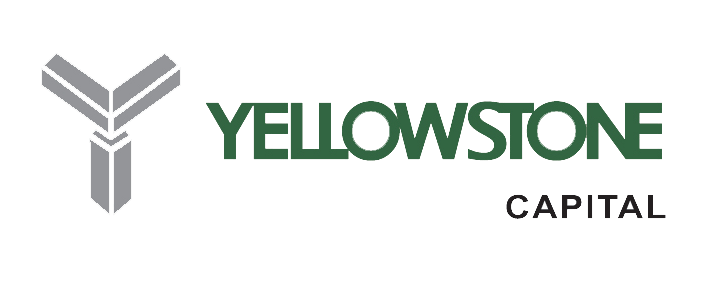
Yellowstone Capital Will Cancel $534 Million in Outstanding Debts for Small Businesses It Preyed on and Immediately Pay $16.1 Million to Affected Businesses
More Than 1,100 Small Businesses in New York Will Have Over $36 Million in Debt Canceled
On Jan. 22, New York Attorney General Letitia James announced a settlement with a network of 25 predatory lending companies controlled by Yellowstone Capital (Yellowstone) and its officers that will deliver over $534 million in debt relief and provide at least $16 million in restitution to small businesses across New York and the country that Yellowstone targeted with illegal high-interest loans. The settlement includes a $1.065 billion judgment against Yellowstone, with over $534 million of that paid by canceling all outstanding debts owed by small businesses, including over 1,100 across New York state and over 18,000 nationwide. The companies and the officers also immediately paid $16.1 million to be distributed to impacted small businesses. The Yellowstone companies will be liable for the remaining $514 million of the judgment.
“Targeting small businesses with predatory loans and outrageous interest rates threatens the livelihoods of hardworking business owners and their employees,” said Attorney General James. “Yellowstone and its executives lined their pockets at the expense of vulnerable small businesses who turned to them for help. Their predatory loans forced successful companies to close and put New Yorkers out of work. My office has put an end to these predatory loans and secured over $534 million in debt relief for businesses that were harmed, helping them stay open and continue to thrive as the engine of our economy. I will always fight to protect New Yorkers’ jobs and will continue to go after anyone who tries to take advantage of small businesses with fraud and deception.”
Attorney General James filed a lawsuit against Yellowstone CEO Isaac Stern, President Jeffrey Reece, and the Yellowstone entities in March 2024 after an Office of the Attorney General (OAG) investigation found that they exploited small businesses through fraudulent loans with astronomic interest rates. These loans were disguised as merchant cash advances, an increasingly prevalent form of short-term, high-interest funding for small businesses, particularly those that cannot get loans from traditional banks.
In a typical merchant cash advance, a business will receive a lump sum in exchange for a share of its revenue over time. In this case, Yellowstone and the other perpetrators of the scheme used contracts that fraudulently described each transaction as a purchase of a portion of a small business’s future revenues, with flexible payment amounts and open-ended terms. In reality, the predatory lenders collected fixed amounts directly from small businesses’ bank accounts every day during short repayment periods that often lasted just 60 or 90 days. These daily collections had little connection to the portion of the businesses’ revenues the lenders supposedly purchased. While the lenders promised to “reconcile” or refund small businesses’ daily payments to ensure they never rose above an agreed-upon percentage of their revenue, they used numerous fraudulent measures to ensure borrowers almost never qualified for these payment refunds. As a result, the transactions actually functioned as short-term loans with ultra-high interest rates of up to 820 percent per year – more than 50 times the legal interest rate.
Over 1,100 small businesses across New York were affected by Yellowstone’s predatory loans and will receive debt relief. These businesses include a food truck and caterer in Buffalo, a hair salon in Syracuse, and a Long Island tailoring shop.
One affected business in Manhattan, City Bakery, a caterer and bakery in Union Square, was forced to close after Yellowstone’s predatory loans trapped the business in a cycle of debt. When the owner was unable to get a traditional business loan from a bank, they turned to Yellowstone for merchant cash advances beginning in 2017. The exorbitant interest rates and punishing repayment terms ultimately led to City Bakery’s closure after nearly 30 years in business. Before closing, the bakery, which employed 30-50 full-time staffers, had to pay more than $2,000 per day to Yellowstone.
The OAG will continue its lawsuit against the companies that took over Yellowstone’s operations in 2021, Delta Bridge Funding and Cloudfund, as well as eight other individuals involved in the scam lending operation, including Yellowstone’s co-founder David Glass. Before filing the lawsuit, Attorney General James reached settlements with five other individuals, in which they paid $3.37 million to OAG to be distributed to impacted small businesses and were banned from the merchant cash advance industry.
Under the settlement announced today, the Yellowstone entities are canceling all amounts owed by merchants, totaling $534,552,724, and together with Stern and Reece, have made an immediate $16.1 million payment toward the remaining $514 million judgment that will be distributed to impacted small businesses. This cash payment will be increased to $30 million if they fail to comply with the terms of the settlement. The Yellowstone entities are required to cease all attempts to collect on balances owed by businesses they lent to, discontinue pending actions to enforce them, vacate unsatisfied court judgments, and terminate some liens on small businesses’ property. The companies and the officers will also be permanently banned from the merchant cash advance industry. The $1.065 billion total judgment is the largest consumer settlement obtained by OAG, excluding multistate settlements.
Impacted small businesses that have a court judgment or pending lien against them from Yellowstone that they would like vacated will receive information by mail on how to make these requests, which must be made within the next six months. Business owners with questions about the settlement can find more information on OAG’s website.
This settlement is the latest example of Attorney General James taking action to protect small businesses from fraud. In February 2024, Attorney General James secured a court judgment of more than $77 million against Richmond Capital Group, Jonathan Braun, and their affiliates and principals who were harming small businesses through phony merchant cash advances that were actually high-interest loans. In April 2023, Attorney General James shut down two websites that impersonated the New York State Department of State and significantly overcharged aspiring small business owners and users for services provided for free from state government. Also in April 2023, Attorney General James released a guide to help businesses adopt effective data security measures to better protect New Yorkers’ personal information.
This matter is being handled by Assistant Attorneys General Adam J. Riff and Dami Obaro, and former Assistant Attorney General John P. Figura and Attorney General Fellow Emily E. Smith, under the supervision of Bureau Chief Jane M. Azia and Deputy Bureau Chief Laura J. Levine, all of the Bureau of Consumer Frauds & Protection. Data Analyst Blake Rubey also assisted in this matter, under the supervision of Victoria Kahn, Director of Research & Analytics. The Bureau of Consumer Frauds and Protection is a part of the Division for Economic Justice, which is led by Chief Deputy Attorney General Chris D’Angelo and is overseen by First Deputy Attorney General Jennifer Levy.





